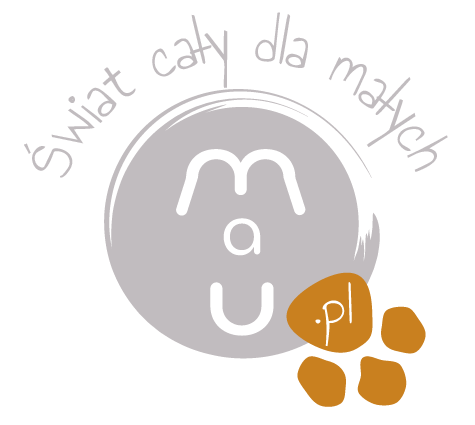Content
Should you or someone close exhibit signs of a growing reliance on this medication, procuring expert assistance is vital for rehabilitation. It’s important to remember that seeking aid is commendable and initiating the path towards healing can occur at any time. Take the first step towards recovery today by seeking help from a qualified healthcare professional or addiction specialist.
“If you don’t address the source of pain, the pain will continue,” she explains. “Treatment with ibuprofen will not stop the source of pain. Rather it interrupts some of the pain sensing pathways to decrease pain.” Before diving into whether ibuprofen is addictive, it’s important to go over the basics of how this medication works. Ibuprofen, which is sold under the brand names Advil, Motrin, and more, is in a class of medications known as non-steroidal anti-inflammatory drugs (NSAIDs).
Ibuprofen Addiction Statistics
While an Ibuprofen dependency can be debilitating, there alcoholism treatment is hope in finding freedom from this. Many individuals may find it necessary to take painkillers, such as Ibuprofen, on a long-term basis in order to manage chronic and severe pain, just as back pain from an injury or joint paint from arthritis. While Ibuprofen is not physically or psychologically addictive, a person may become physically dependent in order to maintain their activity level by controlling pain.
Recovery Programs
- Ibuprofen can interact dangerously with blood thinners, increasing the risk of bleeding.
- Special care should be taken in controlling even moderate pain for certain groups, such as pregnant women.
- That said, severe poisoning or death from an ibuprofen overdose is very uncommon.
- Ibuprofen dependency not only poses risks to one’s physical health but also heavily influences daily activities.
When prescribed by a doctor, Ibuprofen typically comes in a tablet form and is taken by mouth every four to six hours as needed for pain. Eventually a friend gave her a pill, which she broke into pieces to last until she could refill her prescription. “Do I want to be on a medication where if I don’t have it, I feel like I’m dying? ” She realized that she didn’t want to be on Suboxone for the rest of her life. She was also tired of telling doctors she was taking the drug, which she felt led them to treat her differently than they would other patients.
Potential Risks and Side Effects
That said, there has been one rare case study documenting moderate substance abuse disorder after continuously taking more ibuprofen than prescribed. Beyond this, Dr. Alan says that there’s “no data to say that ibuprofen causes physical or mental addiction.” Dr. Scioli agrees. Your healthcare provider will conduct a formal assessment of your symptoms and medical history in order to diagnose your condition, determine its severity, and develop a treatment plan. Francis considers ibuprofen addiction a mental health disorder that should be classified as a somatic disorder—similar to other compulsive, addictive, or anxiety-motivated disorders. This process can break down if the patient has been using fentanyl, which stays in the body longer than heroin or pain pills.
Ibuprofen addiction is a treatable condition, and with the right support and treatment, people can overcome their addiction and live a healthy, fulfilling life. In reality, individuals can become addicted to painkillers and the relief they provide. As their body adjusts to the side effects, they find that they have to take more and more of the medication to achieve the same results. In addition to exceeding the recommended maximum dose, they may exceed the daily limit or number of capsules they should consume. In treatment programmes targeting drug dependence, essential workers are assigned to offer steady backing and counsel during a person’s path towards rehabilitation.
Serious Side Effects
Psychological dependence refers to mental cravings or emotional attachments that develop from using a substance, which can be driven by factors such as stress relief or habit formation. By inhibiting COX enzymes, ibuprofen reduces the https://ecosoberhouse.com/ production of prostaglandins, thus effectively lessening pain and inflammation within 20 to 30 minutes. This addiction can have a grip on someone’s life, but there are treatments available to help. This usually involves the use of a medication called Suboxone that can help curb the painful side effects of withdrawal and detox. Rather, steroids are stronger medicines that help your body fight off stress after or during an illness.
Ensuring that you monitor your usage and follow recommended dosing guidelines can help minimize the risk of developing an unhealthy reliance on ibuprofen. While using ibuprofen, it’s essential to be aware of any warning signs that may indicate a developing addiction. Helping others manage their own pain starts with being knowledgeable about the options available—and sometimes even trying unconventional approaches—so that everyone can experience relief from their suffering.
Currently, the information about Ibuprofen addiction is minimal since the drug is non-addictive and not habit forming. It is possible to develop a dependency on Ibuprofen, and if the drug is being used without a medical need, there may be psychological issues involved that need to be professionally addressed. If taken more frequently or at a higher dosage than directed, you may experience more intense and additional symptoms once the medication is discontinued.
If you or someone you know shows any signs of an ibuprofen overdose, contact your healthcare provider immediately. Note that if you’ve been taking ibuprofen for a long time, then your risk of developing these conditions is markedly higher. Commonly sold under brand names such as Motrin or Advil, ibuprofen belongs to a class of medications called nonsteroidal anti-inflammatory (NSAIDs). These drugs are used to help provide relief from a range of different health conditions, from fevers and headaches to stiff joints and body pain. It’s essential to know when to seek expert assistance if you’re struggling with an addiction to ibuprofen.





